Reports and books
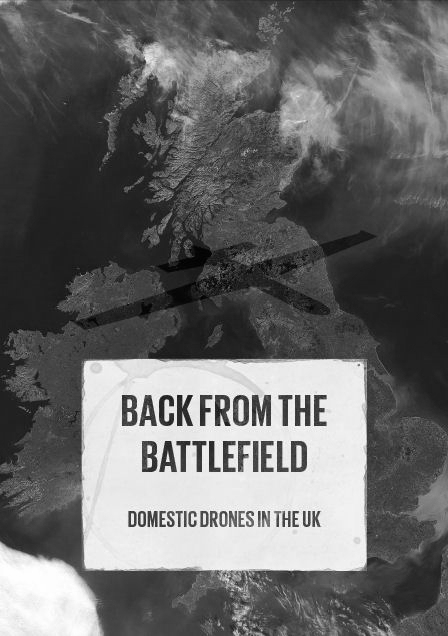
Back from the battlefield: domestic drones in the UK
Back from the battlefield: domestic drones in the UK aims to contribute to the public debate on the use of drones within the UK.
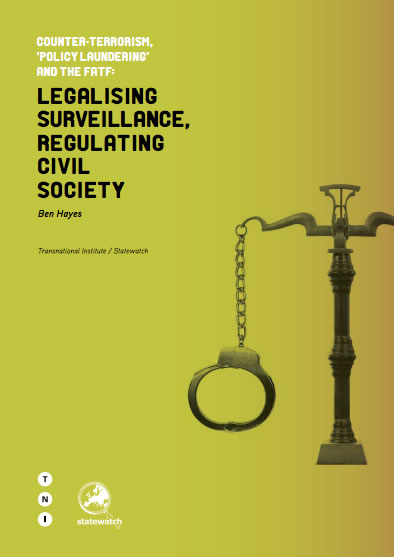
Counter-terrorism, 'policy laundering' and the FATF: legalising surveillance, regulating civil society
This report examines the global framework for countering terrorist financing developed by the Financial Action Task Force (FATF) and other international law enforcement bodies.

The Shape of Things to Come
The Shape of Things to Come examines the European Union's plans for justice and home affairs, and warns that the Union is embarked on several highly controversial paths, including harnessing the 'digital tsunami' to gather personal details on the everyday lives of everyone living in the European Union.
NeoConOpticon: The EU Security-Industrial Complex
NeoConOpticon examines the development and implementation of the European Security Research Programme (ESRP), a €1.4 billion EU ‘R&D’ budget line focused predominantly on surveillance and otherlaw enforcement technologies.
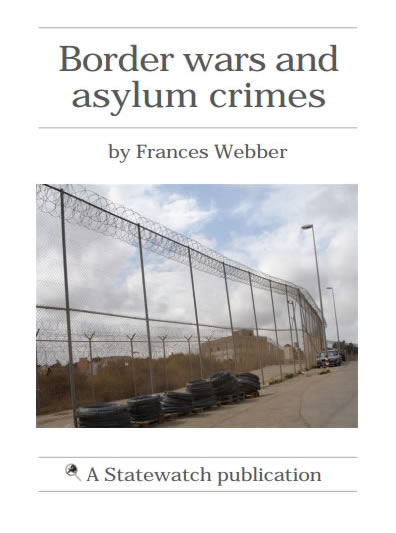
Border Wars and Asylum Crimes
When the Statewatch pamphlet "Crimes of Arrival" was written, in 1995, the title was a metaphor for the way the British government, in common with other European governments, treated migrants and especially, asylum seekers. Now, a decade on, that title describes a literal truth.

The War on Freedom and Democracy
The ‘war on terror’ has continued with no end in sight in the years since the attacks on the United States on 11 September 2001. It permeates the institutions of the body politic in Europe, sacrificing liberty and freedoms in the name of a constructed ‘politics of fear’ and demands for security.

Arming Big Brother: the EU's Security Research Programme
This report documents EU expenditure on "homeland security" research and the role played by arms company lobbyists in securing billions of euros in funding. Warns that the EU is fostering the expansion of an unaccountable security-industrial complex, with far-reaching implications for civil liberties.

Countering Civil Rights
Using public and secret documents, this report looks at moves in the UK, US, the G8, the EU Council and the Council of Europe to introduce new terrorism offences including preparatory acts and "glorification"; to use "intelligence information" as "evidence" in court; and to allow intelligence gathering by new "special investigative techniques".

Data Protection in the Police Sector in Europe: a Failure to Regulate
This report looks at debates on so-called "racial profiling" and the fact that despite condemnation, European states continue to collect data on ethnicity and religion and use it prejudicially in their policing, immigration and counter-terrorism policies.
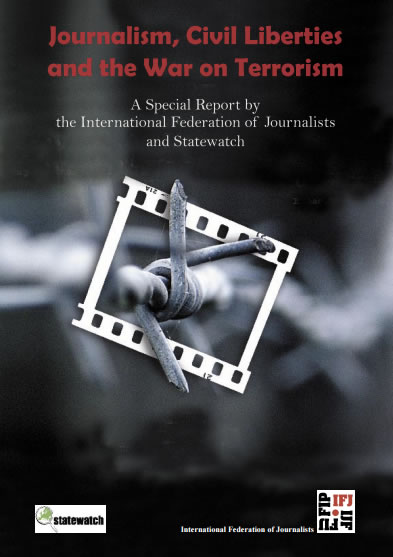
Journalism, Civil Liberties and the "War on Terrorism"
A sixty page assessment of how states are sacrificing civil liberties and free expression in the name of an all too often illusory security.
Secrecy and Openness in the European Union
An "online book" on the history and struggle for freedom of information in the EU. Hundreds of links document the roles played by the EU institutions, the member states and, crucially, civil society.
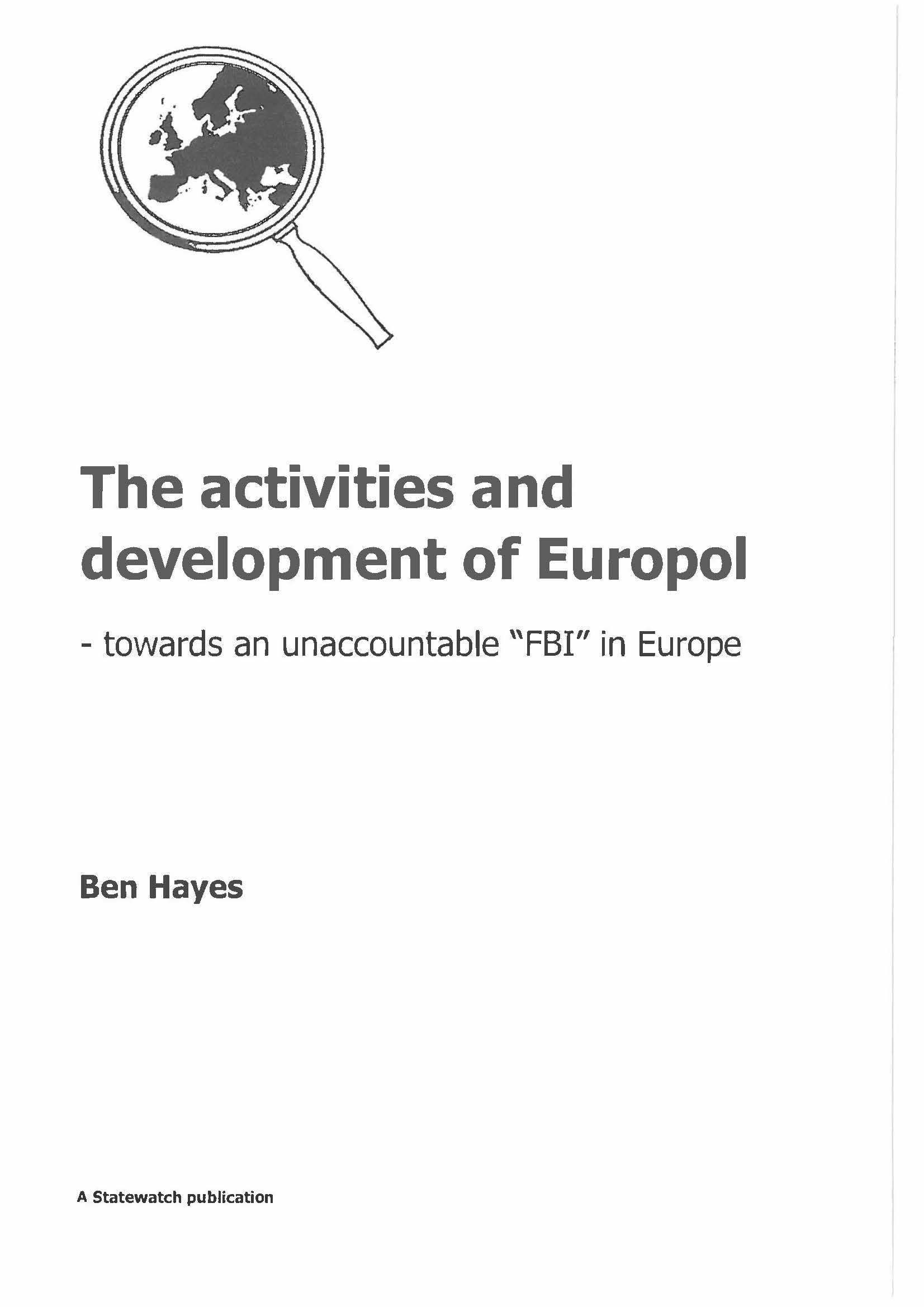
The activities and development of Europol - towards an unaccountable "FBI" in Europe
EU governments signed the Europol Convention in July 1995. Four months later, Statewatch published the first publicly available draft of the text together with a detailed analysis to encourage open debate on the issues it raised. Six years later, this Convention is being rewritten to give Europol operational powers and a much wider remit and open debate needs as much encouragement as ever.

On Globalisation of Control: Towards an Integrated Surveillance System in Europe
The first in-depth analysis of the databases and surveillance mechanisms being put in place by the EU. Examines "Europol", the "Schengen Information System" and a plethora of additional systems, and places them in the dual context of globalisation and social control.

Key texts on justice and home affairs, 1976-1993
Full texts of 56 key documents and reports covering the Trevi group, the Ad Hoc Group on Immigration and the Coordinators of Free Movement. Essential for looking at the pre-Maastricht Treaty period.
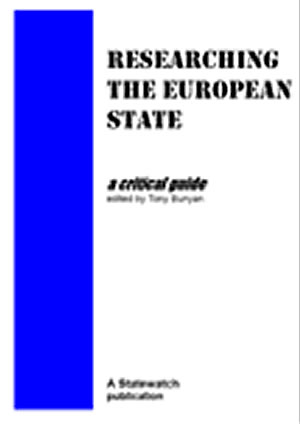
Researching the European state: a critical guide
Comprehensive bibliography with over 1,600 entries, author and subject index. Covers all relevant "official" sources and places a special emphasis on alternative sources.
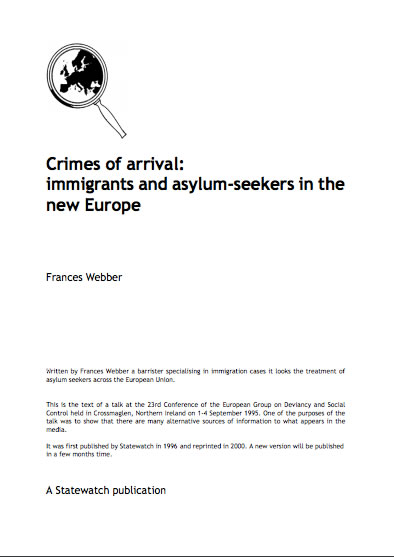
Crimes of Arrival
"[W]hen people are subjected to routine fingerprinting, when they are locked up, when they are restrained by body belts and leg shackles and thirteen feet of tape, or forcibly injected with sedatives to keep them quiet as they are bundled on to an aircraft, it seems reasonable to ask: what have they done? The answer is that they have tried to come to western Europe, to seek asylum, or to live here with their families, or to work here. And the whole panoply of modern policing, with its associated rhetoric, is applied against them."
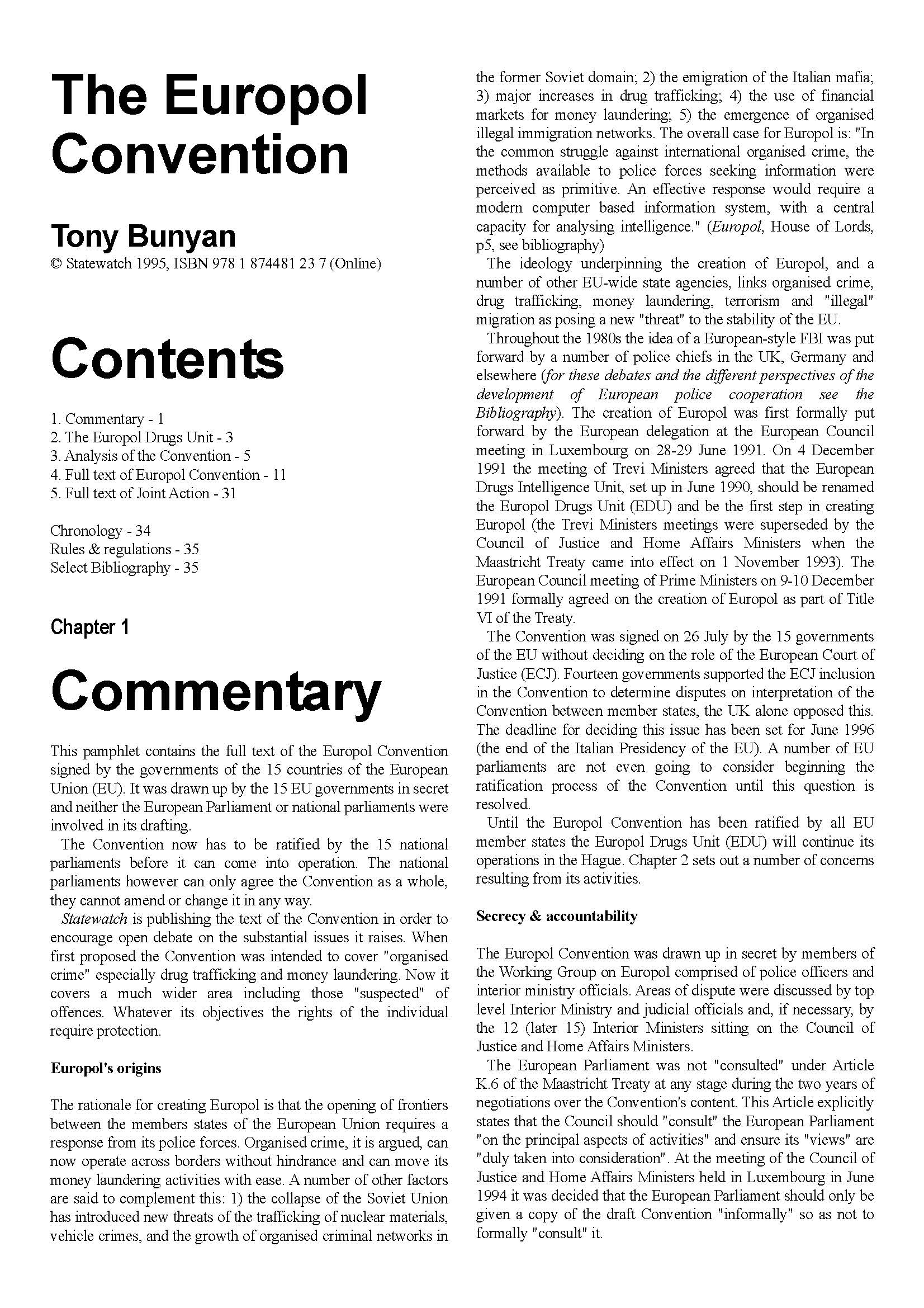
The Europol Convention
This pamphlet contains the full text of the Europol Convention agreed by EU governments in 1995, together with commentary and analysis.

Statewatching the new Europe: a handbook on the European state
A 208 page paperback covering the pre-Maastricht development of the EU's "Third Pillar", a country-by-country analysis of EU police and security services, immigration and asylum policy, racism and anti-terrorism in the North of Ireland.

The History and Practice of the Political Police in Britain
"...is a highly informative and scholarly study in which, for the first time, the work of all the police and intelligence departments are consdiered as unified whole. The author's political conclusions are however open to comment..." - Police Review
Spotted an error? If you've spotted a problem with this page, just click once to let us know.